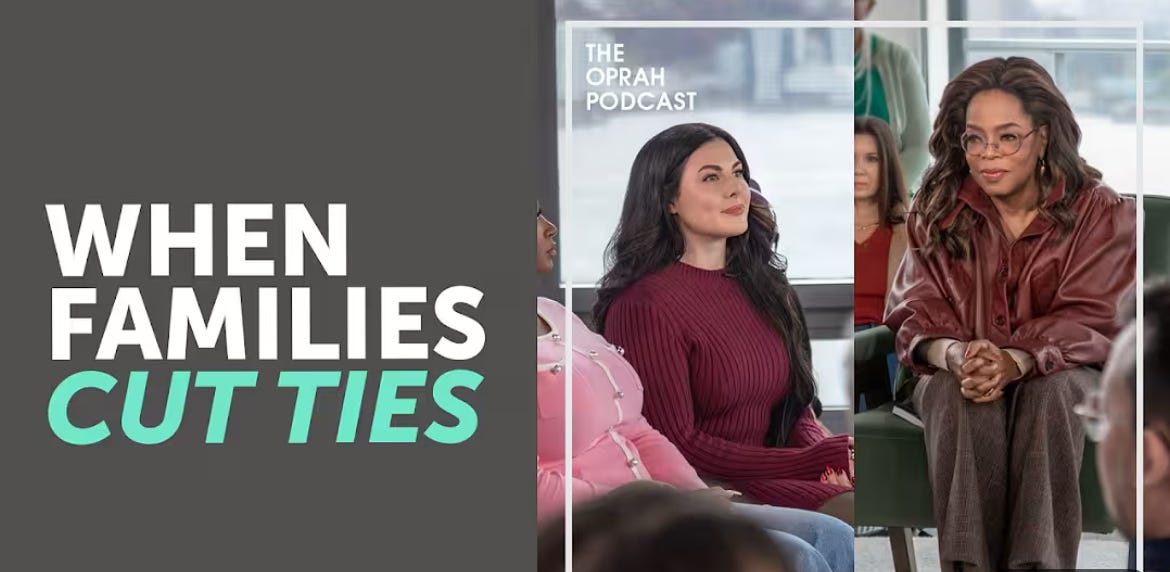The Oprah Podcast on The Cultural Trend of Families Going #NoContact
The Queen of Talks' candid conversation about one of the fastest growing family social crisis of our time.
A Cultural Shift
In a recent episode of The Oprah Podcast, the Queen of Talk explored a trend reshaping families across America: parents and adult children going “No Contact.”



